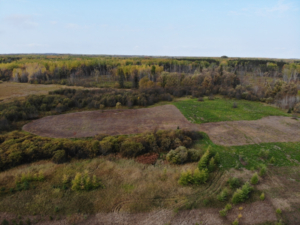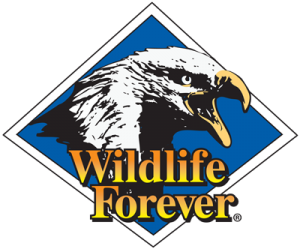Contact: Addison Motta, AMotta@WildlifeForever.org
White Bear Lake MN – Wildlife Forever and the Chippewa National Forest are now partners in restoring permanent forest openings to improve habitat for pollinators and wildlife. These conservation projects will target invasive plant removal and restore multiple openings with native plants. Use this interactive map to explore the areas open to public hunting.
“Restoring public lands and reintroducing native plants helps wildlife and local communities that rely on healthy forests,” said Wildlife Forever President and CEO Pat Conzemius. “The Chippewa National Forest is a treasure for all to enjoy.”
Permanent forest openings are common in the Chippewa National Forest. These areas collectively occupy thousands of acres and provide ideal habitat for pollinators and wildlife, such as ruffed grouse. The openings include a diverse network of woodland, prairie and wetland complexes.
“Restoring forest openings is a huge benefit for wildlife and countless pollinator species. Working with Wildlife Forever allows us to leverage funds for more on-the-ground restoration, benefiting our national forests and public lands,” said Todd Tisler, Wildlife Program Leader of the Chippewa National Forest.
Degradation of these openings happens over time due to invasion of non-native plants. Often, these invasive species, such as thistle and spotted knapweed are introduced accidentally by recreational users. It’s important for hikers, campers and hunters to diligently clean all gear before and after visiting national forests.
Forest openings are also rich in berries, seeds and insects. They provide ideal food for upland species, including grouse, turkey and woodland songbirds. Pollinator species, such as the endangered rusty patched bumble bee, also rely on this habitat for food and overwintering protection. These restoration projects will also create economic and recreational benefits for local communities, including improved hunting and wildlife viewing for all participants.
For more information about Wildlife Forever’s habitat restoration work, visit https://www.wildlifeforever.org/prairie-city-usa/

